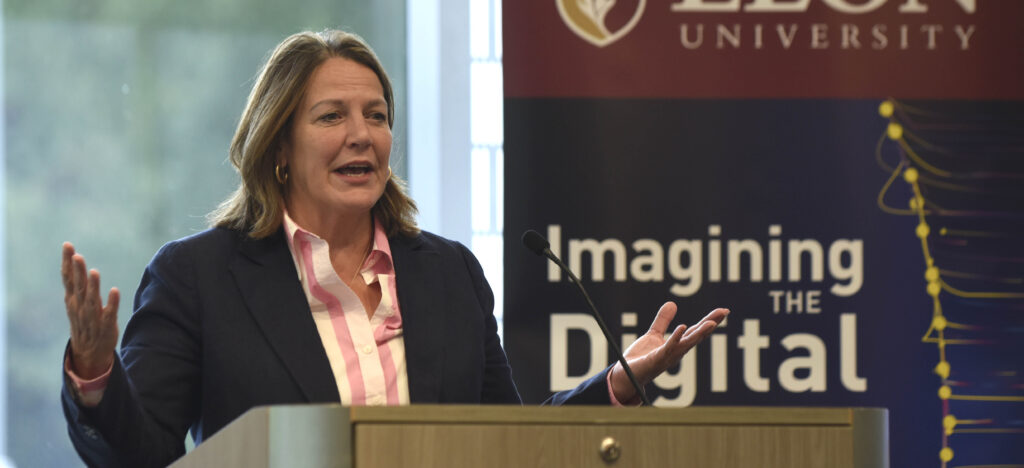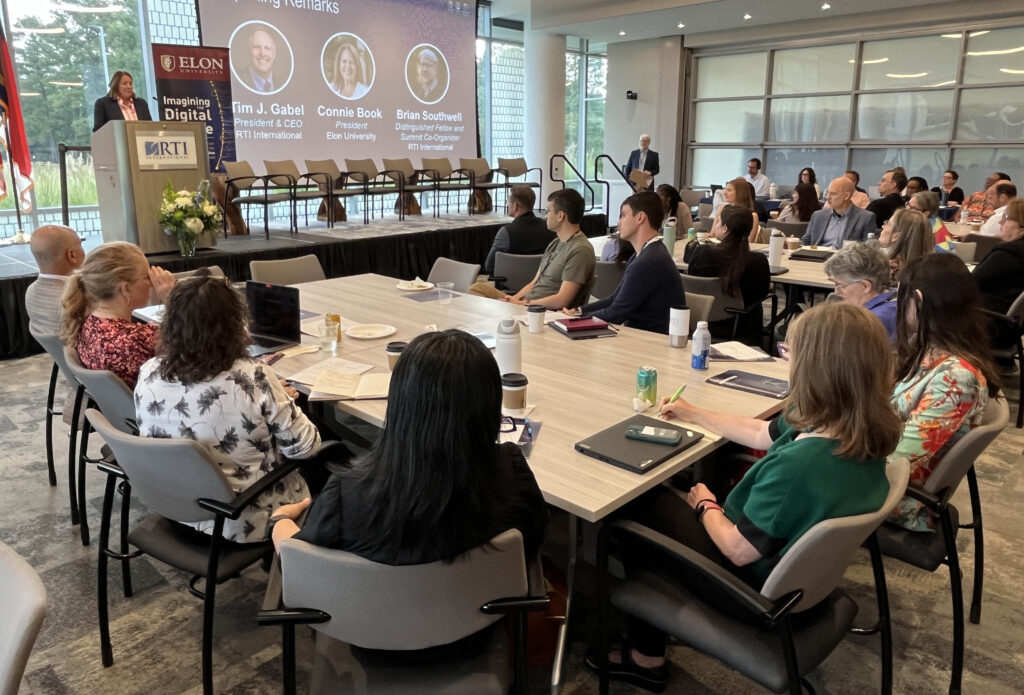Welcoming remarks at ‘The Human Edge’ conference sponsored by Elon University and Research Triangle International (RTI) in Durham, N.C.
September 17, 2025
By Lee Rainie
Connie Book, President of Elon University, kicked off a major technology summit by emphasizing that humanity stands at a critical juncture regarding its own identity.

A communications scholar herself, Book recalled the initial excitement of the internet’s diffusion, noting that in 1993 and 1994, Americans were introduced to the World Wide Web via “AOL in the grocery store,” where shoppers received a free CD disk to help them access the internet. She noted that college campuses today share a similar “exciting energy around co-learning” as faculty, staff, and students navigate AI together.
Two Crucial Questions
Book posed two pivotal questions that underpined the conference’s mission:
- “Where will we humans find our place in the world where there are forms of intelligence that equal or even perhaps surpass some aspects of our intelligence?”
- “What are the precious and special capacities of humans that we can work together to implement to ensure that these intelligences are harnessed for the good of all?”
These questions emerge from a long-running body of research at Elon, dating back to the Imagining the Internet project, which has been recast as the Imagining the Digital Future Center.
Losing the ‘exceptionalism of biological life’
Book shared key findings from Elon’s research, specifically the Being Human report, which gathered experts’ views on the future of personhood in the age of AI. Concerns among experts include how humans will change when they become reliant on AI systems that are “equivalent to and better than people at some tasks.” Book highlighted a stark warning raised by one respondent in the study: “As AI integrates more fully into our world, we may lose the exceptionalism of biological life”.
She also focused on the release new findings from a general public survey conducted by ITDF Center. This public survey found that both the public and experts agree that the adoption of enhanced AI systems could significantly affect a variety of core human attributes, including “empathy, the willingness and ability to do deep thinking, social and emotional intelligence, and human agency itself.”
Book emphasized that the public’s outlook is deeply pessimistic: “Across the board, the public believes AI’s effect on these traits will be mostly negative.”
Global leadership on AI principles

In response to these concerns, Elon University is heavily invested in addressing “the co-evolution of humans and digital systems.” Book highlighted the university’s global efforts, including its work at a UN-hosted global internet conference in Japan in 2023, where Elon helped lead the creation of a global coalition of colleges and universities promoting six principles for institutions to embrace as they take action on AI. The principles:
- People, not technology, must be at the center of our work
- We should promote digital inclusion within and beyond our institutions
- Digital and information literacy is an essential part of a core education
- AI tools should enhance teaching and learning
- Learning about technologies is an experiential, lifelong process
- AI research and development must be done responsibly
Closing her address, Book thanked the partners underwriting the effort and emphasized the need for collective action: “I know our future will be in good hands if people everywhere, across all walks of life, gather together as we are here today and foster forward thinking and take significant action toward taking and building a better future together.”


